“So?”
“So if we leave this little family-stew to cook, I can tell that dear old Dad gives up the other woman, and the marriage is saved. Ninety-six percent probability.”
“You’re incredible!” said Deanna. “Sherlock Holmes couldn’t be that exact!”
Dillon shrugged. “It’s like looking at a work of art,” explained Dillon. “It’s just a bunch of paint, but when you look at it you see the Mona Lisa, right? Well, when I look at all of these things, I see a picture, too. I see who these people were, who they are, and who they’re probably going to be.”
“What do you see when you look at me?” asked Deanna.
Dillon didn’t even try—he just shook his head. “You’re like me,” he said. “Too complex to figure out.”
She smiled at him, and he took her hand. “C’mon,” he said, “I know all I need to know about this family . . . let’s move on.”
As they left, Deanna noticed the way he rolled his neck, and the way sweat was beginning to bead on his forehead.
“The wrecking-hunger . . . it’s back again isn’t it?”
“I try not to think about it,” he said, and tugged on her arm a little more urgently. “C’mon.”
Out back, they saw a man in the next yard patching up a hole in a boat.
“Hi! We’re Joey and Jason’s cousins,” said Dillon to the man.
“Josh and Jennifer,” added Deanna with a smirk.
The neighbor nodded a quiet hello. Dillon noticed the circles beneath his eyes, and the ghost of a missing wedding ring on his tan left hand. Dillon listened to the way in which a dog inside the house yowled.
“Sorry to hear about your wife,” said Dillon. . . .
***
On they went, weaving in and out of homes and yards, pretending to be people they weren’t—and no one doubted them because Dillon was so very good at the game. He knew the exact things to say that would make people open up their homes, and their hearts, telling him things they would never usually tell a stranger. It was as if they were hypnotized and didn’t know it.
All the while Dillon’s sweats had gotten worse, his breath had gotten shorter, and his face was becoming flushed.
In the last home, a woman had offered them iced tea and looked at Dillon with worry in her eyes.
“You sure you don’t want me to call a doctor?” she asked, but Dillon shook his head and stumbled out into the street.
“He’ll be okay,” said Deanna, covering. “Asthma—his medicine’s back in our cousin’s house.” Deanna left the house and hurried after Dillon, feeling her own worry explode into fear. More than just fear . . . terror. Her own familiar brand of terror.
At the edge of the street, Dillon leaned against a tree, gritting his teeth and clenching his fists. His breath came in short labored gasps. Not yet, he told the hunger that gnawed on the ragged fringe of his soul. It was so powerful now, he knew if he didn’t feed it soon it would turn on him and devour him in an instant. You have to wait! You have to wait until everything’s ready, he told the hunger. Dillon kept telling himself that he was its master, but all beasts turn on their masters if they’re not fed.
By now the sun was low in the sky, casting hazy patterns of light through the trees. Patterns of light, patterns of life—sights, sounds, and an impossible puzzle of relationships between the people on this peaceful street.
Not so impossible. Dillon looked from house to house, jumbling all the patterns in his mind, looking for a common thread . . . and at last he found it. He marveled at the power of the solution he had found. It was like a key to open a great Pandora’s box. But it was so big —many times bigger than what he had done the day before. Did he dare do it? The wrecking-hunger answered by twisting his gut and bringing him to his knees.
Deanna ran toward him pale and frightened, and held him to keep him from falling to the pavement.
“Tell me what you need,” she said. “I can help you if I know.”
“You already know,” he answered.
Deanna looked away. Yes, she knew. He said he had come here looking for a place to eat. But deep down Deanna knew that he really meant a place to feed.
The look on Dillon’s face had become so helpless and desperate—so consumed by the hunger, she would have destroyed something herself to save him now.
“Will you let me do it?” asked Dillon. “Will you promise not to hate me?”
“Do it,” said Deanna. “Feed it any way you can.”
Deanna was shaking now; her eyes darting back and forth as if death would come swooping at both of them from the sky. His hunger and her fear were so tightly connected, she knew that when the hunger was fed and he was strong once more, she would be strong as well.
Dillon found the strength he needed to get to his feet and stumble off into the road toward the second house on the right, where Jason, Joey’s older brother, had just arrived home with his girlfriend.
Deanna watched him go, then turned away as she felt something begin to rise in her own gut—and it wasn’t just fear.
Will you let me do it? he had asked. He had never asked so bluntly before, but the question was there every time. He needed her permission. He needed her approval for every monstrous act he committed, and she always gave it—as if in some way she was in control. As if she was the one setting him loose to create chaos.
There were many things she could make herself deny. She could deny the sounds of disaster they left behind, she could convince herself that, beyond all reason, something good would come from all this destruction. But now she could not deny that it was all happening because of her— because she gave Dillon permission. She bit her hand to hold back her own scream.
Across the street, Dillon approached Jason’s girlfriend, who was waiting for Jason on the porch. By now anything human had drained out of Dillon’s voice, and he spoke in a rough snarl that came deep from his gut. It was the voice of the hunger itself.
“You!” growled Dillon as he approached her.
The girl gasped at the sight of him hobbling closer on his weak legs.
Dillon came right up to her, looked into her eyes, read her soul, and said, “Ask Jason to tell you the truth.”
One of the girl’s wide black pupils suddenly constricted down into a pinpoint in a huge blue eye. “Okay,” she said dreamily, “I’ll ask him.” She turned and headed into the house.
Dillon stumbled across the street, already beginning to feel the tiniest bit better. He found Deanna standing just where he had left her.
“Let’s get out of here,” said Dillon, but she wasn’t budging. Her hands were clenched by her sides in tight, anxious fists.
“Tell me what you did to her.”
“I thought you didn’t want to know,” said Dillon.
“I want to know now!”
Dillon turned on her with a vengeance. “I’m trying to protect you!” he shouted. “That’s what you want, isn’t it? That’s what you’ve always wanted!”
Deanna drew a deep breath and said slowly, forcefully, “Tell me what you did!”
Dillon kicked the ground hard. “I planted a seed, like I did at the farmhouse. I just made a suggestion, that’s all.” Dillon told Deanna what he had said to the girl, and Deanna listened to his words thinking that there must be more . . . but that was all Dillon said. A suggestion? A mere suggestion was going to satisfy the wrecking-hunger? How could that be?
But it wasn’t just any suggestion, was it? It was the right suggestion. Dillon had sized things up and knew the exact words that would set powerful forces in motion that would grind these people up.
Читать дальше
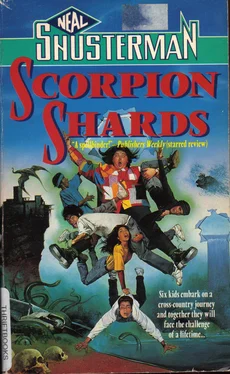


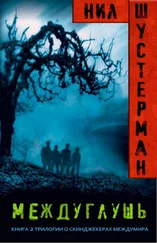

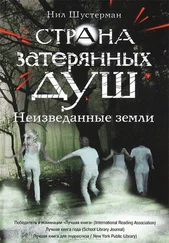
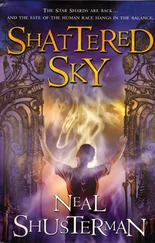
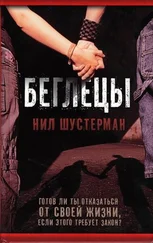
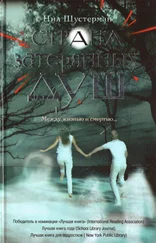


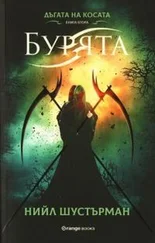
![Нил Шустерман - Жнец [litres]](/books/418707/nil-shusterman-zhnec-litres-thumb.webp)